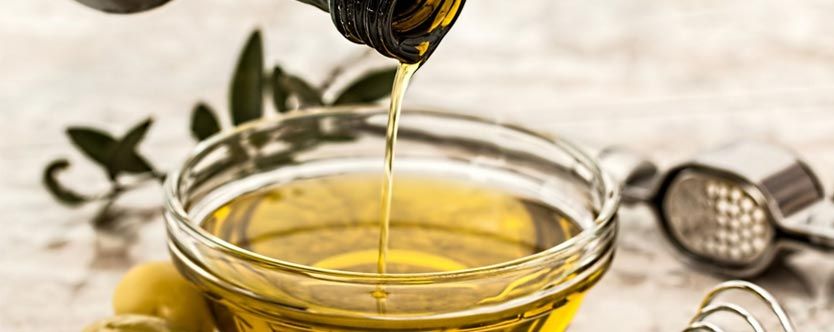
10 Benefits of Olive Oil
Cholesterol is a waxy fat-like substance which is produced naturally by the human liver. Cholesterol is found in two types, mainly HDL (high-density lipoproteins) or good cholesterol and LDL (low-density lipoproteins) or bad cholesterol.
The primary functions of cholesterol include the production bile, hormones and vitamin D, which is required for the healthy functioning of the body. Thus, an imbalance in cholesterol levels could put one on the path towards serious health issues, such as a heart attack or a stroke.
Health Total has been a specialist in the field of lifestyle and health management for over 2 decades and has been using food as medicine to manage healthy life for its clients. This gives Health Total a unique commanding position to recommend healthy foods.
Health Benefits of Olive Oil
Olives, also known by their botanical name ‘Olea europran,’ are a superfood when it comes to lowering high cholesterol levels. These little fruits are well loved for their tangy flavour and numerous health benefits. Some health benefits of olives are:
- Maintains healthy cholesterol levels
- Weight loss
- Promotes heart health
- Prevents anaemia
- Prevents blood clots
- Treats high blood pressure
- Strengthens immunity
- Boosts fertility
- Improves memory
- Prevents skin aging
Olives for High Cholesterol
Although high in fat, olives primarily contain monounsaturated fats, which help maintain a healthy balance of cholesterol levels. Here’s how olives help lower HDL levels and maintain healthy blood cholesterol levels.
- Prevents absorption of cholesterol
- Prevents blood clots
- Prevents atherosclerosis
- Aids weight loss
- Reduces risk of diabetes
Prevents Absorption of Cholesterol
Cholesterol is a waxy substance produced by humans, as well as plants and animals. However, certain plants like olive trees do not produce cholesterol. Instead, they produce phyosterol, also known as plant sterols. Thus, olives are loaded with phyosterols, which help block the absorption of cholesterol by the intestines and help maintain a healthy level of total cholesterol in the body.
Prevents Blood Clots
As the levels of cholesterol in the body rise, the excess cholesterol is deposited in the arteries, where it mixes with other substances and forms into plaque. Plaque restricts blood and oxygen flow to vital organs, causing blood clots to form which can result in a heart attack or a stroke.
Olives contain monounsaturated fats and high levels of vitamin E, which prevent excess levels of cholesterol from building up in the body. They protect against plaque formation, keep the arteries clean and prevent blood clots. Thus, olives help reduce the risk of heart problems.
Prevents Atherosclerosis
Atherosclerosis refers to hardening and narrowing of the arteries caused due to plaque build-up and is a major cause of heart attacks. The monounsaturated fats found in olives prevent plaque formation in the arteries, thus preventing atherosclerosis.
Aids Weight Loss
Obesity and being overweight are common factors behind high cholesterol levels. Olives are rich in healthy monounsaturated fats, as well as minerals and vitamins which help break down fat cells and get rid of belly fat. Thus, olives promote weight loss and lower one’s risk of high cholesterol.
Reduces Risk of Diabetes
Certain health disorders such as high blood pressure or diabetes can lead to increased levels of cholesterol. However, fortunately, the monounsaturated fat found in olives naturally lowers blood pressure and maintains healthy blood sugar levels.
Side Effects of Olives
Though olives are extremely healthy and a great cholesterol-friendly food, this superfood comes along with its fair share of side effects. Some of the side effects are:
- Skin rashes
- Acne
- Diarreha
- Low blood sugar levels
- Low blood pressure
- Inflammation
However, these side effects are known to occur when one consumes an excess amount of olives. Therefore, be careful about a number of olives you add into your diet on a daily basis.
How to Add Olives in your Diet
Olives are very bitter and sour to taste when they are raw. Hence, they have to be cured in a mixture of oil to make them edible. Here are a few ways to add olives into your diet:
- Add them to your salads
- Add them to your sandwiches
- Eat 2-3 olives to curb your hunger pangs
So now you know all about the health benefits and cholesterol-lowering benefits of olives. Add them to your diet and lower your cholesterol! If you have any questions regarding olives, and how many you should include into your diet, talk to our health experts on our toll-free number ![]() 1-800-843-0206 right away!
1-800-843-0206 right away!
